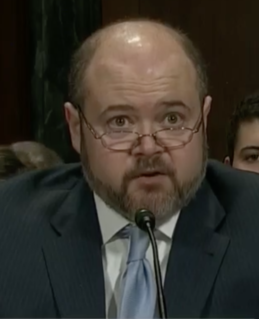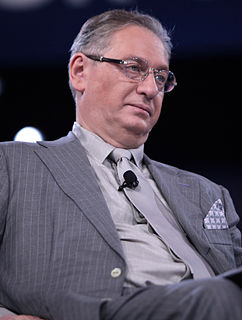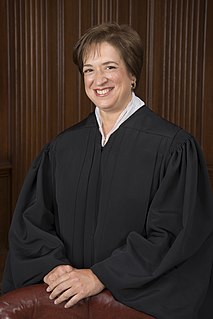A Quote by Prashant Bhushan
I have had the greatest respect for the institution of the Supreme Court. I have always believed it to be the last bastion of hope, particularly for the weak and the oppressed who knock at its door for the protection of their rights, often against a powerful executive.
Related Quotes
Class warfare always sounds good. Taking action against the rich and the powerful and making 'em pay for what they do, it always sounds good. But that's not the job of the Supreme Court. The Supreme Court standing on the side of the American people? The Supreme Court adjudicates the law. The Supreme Court determines the constitutionality of things and other things. The Supreme Court's gotten way out of focus, in my opinion.
In fact, Native American Rights Fund has a project called the Supreme Court Project. And quite frankly, it's focused on trying to keep cases out of the Supreme Court. This Supreme Court, Justice Roberts is actually, hard to believe, was probably worse than the Rehnquist Court. If you look at the few decisions that it's issued.
The very purpose of the Bill of Rights and the Constitution is to protect minority rights against majority voters. Every court decision that strikes down discriminatory legislation, including past Supreme Court decisions, affirming the fundamental rights to marry the person you love, overrules a majority decision.
I feel that at this point in our country's history, it is important that we not reverse marriage equality, that we not reverse Roe v. Wade, that we stand up against Citizens United, we stand up for the rights of people in the workplace, that we stand up and basically say: The Supreme Court should represent all of us. That's how I see the court, and the kind of people that I would be looking to nominate to the court would be in the great tradition of standing up to the powerful, standing up on behalf of our rights as Americans.
Wasn't it Bertrand Russell who used the phrase 'The superior virtue of the oppressed'? There is always this temptation amongst people that see themselves as progressive, and on the side of the weak. They demonize the powerful, but over-romanticize the weak. I think we should recognize that. If you take seriously the idea that people are always going to use truth claims as a means of powering their own agenda, that is going to happen whether you're weak or powerful.
Well-established Supreme Court precedents indicate that states - like the states of Washington and Minnesota - have no equal-protection rights of their own, nor can they vindicate equal-protection rights of their citizens. The same is true about being able to challenge alleged religious discrimination. This limitation on the states' authority to champion such claims is fundamental to our separation-of-powers architecture.
The unqualified truth is, that when I loved Estella with the love of a man, I loved her simply because I found her irresistible. Once for all; I knew to my sorrow, often and often, if not always, that I loved her against reason, against promise, against peace, against hope, against happiness, against all discouragement that could be. Once for all; I love her none the less because I knew it, and it had no more influence in restraining me, than if I had devoutly believed her to be human perfection.
The notion that the Supreme Court comes up with the ruling and that automatically subjects the two other branches to following it defies everything there is about the three equal branches of government. The Supreme Court is not the supreme branch. And for God's sake, it isn't the Supreme Being. It is the Supreme Court.



































